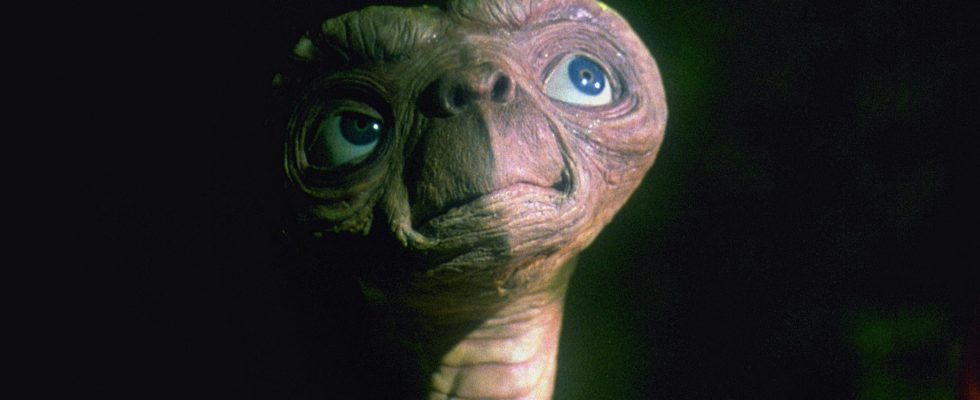Anyone born in the 1970s has an almost native interest in extraterrestrials. By Jean-Claude Bourret [La Nouvelle Vague des soucoupes volantes, paru en 1974, est le premier volume d’une série ]has Dating of the Third Kind (Steven Spielberg, 1977), from Star Wars (George Lucas, 1977) at Alien (Ridley Scott, 1979), from AND (Steven Spielberg, 1982) until X Files (Chris Carter, 1993), without forgetting the kind of funny summit that was Starship Troopers (Paul Verhoeven, 1998), theories, rumours, fictions, blurred images captured on camcorders have rained on our shoulders like asteroids on the Tungouska steppe.
So we, almost by reflex, listened when, at the end of July, the United States Congress decided to hear David Grush, a former soldier in the US Air Force and an intelligence officer. David Grush appeared under oath, flanked by two other great witnesses, David Fravor and Ryan Graves, former US Air Force pilots. Seriously questioned, the three men claim to be certain that the American services have debris from extraterrestrial vessels and have been able to collect the creatures that piloted them. They even claim to have proof of it, without really advancing any. The seriousness of these three former soldiers had never been denied when they were in the army. That they have lost common sense since they left her is a hypothesis.
This hearing is the result of the public broadcasting for several years of images captured by American warships of these UAPs (Unidentified Aerial Phenomena) having led the Pentagon to admit that it housed a cell dedicated to research on this subject. This hearing before Congress therefore did not fall from the sky (if I may say so). It is the result of a campaign conducted methodically by individuals convinced that the US government has information that it is time to put in the public square, and who acted as whistleblowers.
dreamy thrill
In our latitudes, this hearing was not without arousing a certain skepticism, for obvious reasons. This takes nothing away from the dreamy thrill one feels when listening to the peremptory affirmations of retired soldiers. All sorts of images and references come to the surface. The imagination is mobilized. Emotion is involved. Like Indiana Jones in The Kingdom of the Crystal Skull, we are rationally ready to believe in the irrational. In support of this guilty temptation, a disturbing ally had to appear: Alexandre Sheldon Duplaix, Franco-American specialist in naval matters, expert in submarines, co-author of battle fleets (reserved for specialists in the specialty), questioned by the indispensable Alexandre Jubelin (his deep voice, his calculated compunction, his tone always tongue in cheek : the Jean Rochefort of military questions) in his very serious podcast Le Collimateur, hosted by the no less serious Irsem (Strategic Research Institute of the Military School). For nearly two hours, the expert in naval questions unrolled, in front of a Jubelin vaguely trying to pull on the reins, the long genealogy having led to this hearing of the discoveries of Roswell to the present day, in an incredible immersion in the heart of this subject that takes from the spy novel and the adventure film.
We almost wish it were all true. For what ? Well, because we live in a time when humanity has rarely been so afraid of itself. Nuclear war, artificial intelligence, fanaticism, global warming: we ourselves have created the monsters that prevent us from sleeping. For this, humanity hates itself. The little (maybe) green creatures that David Grush tells us about are (maybe) not our friends. But they have this immense virtue of making us believe that terrestrial humanity still presents a certain interest in the eyes of distant and advanced civilizations, which come to visit it with the discretion and patience of an entomologist. This is, let’s face it, extremely gratifying, because the day when we no longer interest the aliens will be a very sad day for humanity. It will be time to draw the curtain. In this summer of all dangers, the American Congress will have, perhaps unwittingly, offered all of humanity reasons to believe a little longer in itself, if not to believe in extraterrestrials.
